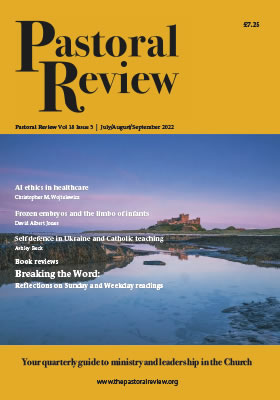‘Silence is the key to everything. First, silence teaches us to go inside ourselves to find real life rather than to reach for it always and forever outside ourselves. Second, silence provides us with the harrowing ground of the soul. It breaks up the clods of our lives, it roots out the weeds, it levels the rocky ground in which we’ve grown. Most of all, it is in silence that we hear our own cries of fear and pain and resistance, which only in silence can really be addressed. In silence, we come to know ourselves.’
These words by the American Benedictine Joan Chittister reflect how the monastic tradition values silence; they can also be applied to the Church as an institution. At times we are called to be silent as a community, perhaps particularly during or after a time of crisis (such as the Covid pandemic) and certainly when we are trying to be penitent as a community because of sinfulness (for example, because of the abuse scandals). Such silence and time for reflection is valuable; it needs to happen at different levels within the community. The synodal pathway which Pope Francis initiated about a year ago involves a certain amount of silence within the process of dialogue: we can only listen to others if we keep quiet! Being open to the Holy Spirit and reflecting on sins and mistakes both demand space and time: many pressures within the Church and society make this difficult. Jeremiah and other Old Testament prophets in their self-reflection, often showing a difficult relationship with God, point to the need for silence.
30 September 2022, The Tablet
A time to be silent and a time to speak

Get Instant Access
Continue Reading
Subscribe to the Pastoral Review today
From just £27 for a year’s subscription
Subscribe to either a print or digital subscription.
Delivered straight to your door or inbox.
Your quarterly guide to ministry and leadership in the Catholic Church.
Already a subscriber? Login


